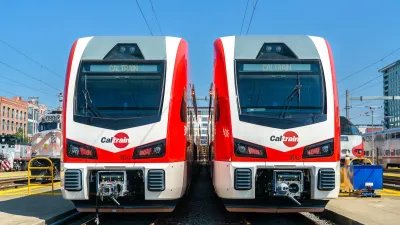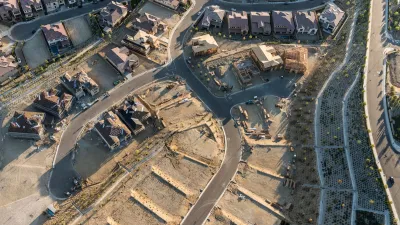Faith Cable reports on the CEU's 3rd annual conference, held in Oslo, Norway, which addressed cities and their ability to address climate change through urban design.
"Discussions of sustainable building, clean energy systems, improved transit options and other urban issues are decades old, but the study of how to combine all of those separate elements into one integrated form – the city – is still largely emerging."
"It is clear there is plenty of need for pioneering research and debate on this topic. Diana Ürge Vorsatz, lead author of the fourth report from the International Panel on Climate Change (IPCC), discussed the limited extent to which urban form has been addressed in the IPCC reports thus far. She announced that her next project, however, will look deeply into the issue of cities. The new report, called the Global Energy Assessment will address measures of how much energy cities consume, and climate-related challenges facing urban environments such as reduced availability of clean water. Vorsatz asserted that any climate change solutions must be city-based because most greenhouse gas emissions originate in cities, and the percentage of the world's population living in cities – now over half – increases every year."
FULL STORY: Reader Report: Linking Cities and Climate at The Third International CEU Conference

Manufactured Crisis: Losing the Nation’s Largest Source of Unsubsidized Affordable Housing
Manufactured housing communities have long been an affordable housing option for millions of people living in the U.S., but that affordability is disappearing rapidly. How did we get here?

Americans May Be Stuck — But Why?
Americans are moving a lot less than they once did, and that is a problem. While Yoni Applebaum, in his highly-publicized article Stuck, gets the reasons badly wrong, it's still important to ask: why are we moving so much less than before?

Research Shows More Roads = More Driving
A national study shows, once again, that increasing road supply induces additional vehicle travel, particularly over the long run.

Judge Halts Enforcement of Anti-Homeless Laws in Grants Pass
The Oregon city will be barred from enforcing two ordinances that prosecute unhoused residents until it increases capacity and accessibility at designated camping sites.

Advancing Sustainability in Los Angeles County Schools
The Los Angeles County Office of Education’s Green Schools Symposium brings together educators, students, and experts to advance sustainability in schools through innovative design, climate resilience strategies, and collaborative learning.

Using Old Oil and Gas Wells for Green Energy Storage
Penn State researchers have found that repurposing abandoned oil and gas wells for geothermal-assisted compressed-air energy storage can boost efficiency, reduce environmental risks, and support clean energy and job transitions.
Urban Design for Planners 1: Software Tools
This six-course series explores essential urban design concepts using open source software and equips planners with the tools they need to participate fully in the urban design process.
Planning for Universal Design
Learn the tools for implementing Universal Design in planning regulations.
City of Moreno Valley
Institute for Housing and Urban Development Studies (IHS)
City of Grandview
Harvard GSD Executive Education
NYU Wagner Graduate School of Public Service
City of Cambridge, Maryland
Newport County Development Council: Connect Greater Newport





























